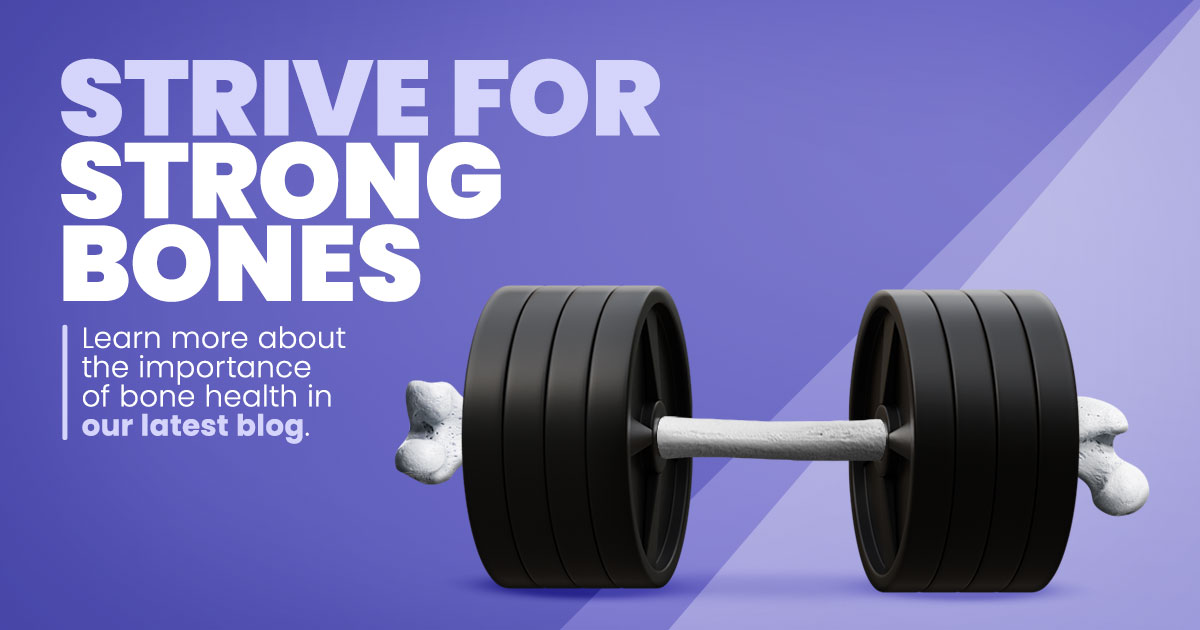October is not just about pumpkin spice lattes and colorful autumn leaves; it’s also for Bone and Joint Health Awareness! Your bones are the unsung heroes of your body, providing structure, support, and protection. To honor Bone and Joint Action Week, let’s discuss what makes bones healthy and strong, how to take care of them, and the potential effects of medications on bone health.
The Importance of Healthy Bones
Your bones are not just lifeless structures; they are living tissues that are continually changing. Healthy bones are vital for various reasons. Bones are dynamic living tissues with multifaceted roles in our bodies. First and foremost, bones provide crucial structure and support to our entire body, giving it shape and stability while also serving as a foundation for our muscles and organs. Additionally, bones play a pivotal role in protecting vital organs like the brain, heart, and lungs from potential injury. Furthermore, the marrow within our bones takes on the essential task of producing red and white blood cells, as well as platelets, which are indispensable for our overall health. Lastly, bones act as a reservoir for vital minerals, including calcium and phosphorus, that our body can tap into when needed, ensuring the proper functioning of numerous physiological processes.
How to Promote Bone Health
Maintaining strong and healthy bones is a lifelong commitment. Here are some tips to help you care for your bones:
- Balanced Diet: Ensure your diet includes sufficient calcium, vitamin D, and other essential nutrients. Dairy products, leafy greens, and fortified foods are excellent sources.
- Regular Exercise: Weight-bearing exercises like walking, running, and weightlifting help strengthen bones. Additionally, flexibility exercises like yoga can improve balance and reduce the risk of falls.
- Avoid Smoking and Excessive Alcohol: Smoking and excessive alcohol consumption can weaken bones, so it’s best to avoid or limit these habits.
- Bone Density Testing: As you age, consider bone density testing to assess your bone health. Early detection of bone loss can lead to proactive measures.

Medications and Bone Health
Certain medications, including some steroid medications and other immune system modulators, can impact your bone health with long term use. Some birth control medications that do not contain estrogen can also have an impact on bone health. These effects depend on duration of use and other factors, so consult with your healthcare provider if you have concerns about bone health.
Explore Bone Health Research
If you’re passionate about bone health and want to contribute to advancements in this field, consider participating in bone health research studies. Here at Seattle Clinical Research Center, we strive to be at the forefront of research in various health areas, including bone health. By volunteering for a research study, you can help scientists and healthcare professionals better understand bone-related conditions and develop more effective treatments.

Healthy bones are the foundation of a healthy body and by adopting a bone-friendly lifestyle, staying informed about the potential effects of medications on bone health, and exploring research opportunities, we can all play a role in safeguarding our bone health. Strong bones are the base to a vibrant, active life!


